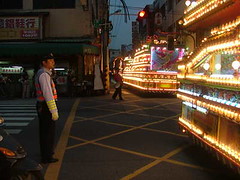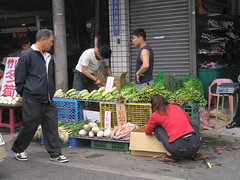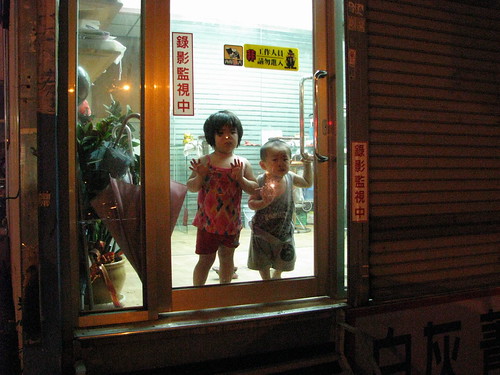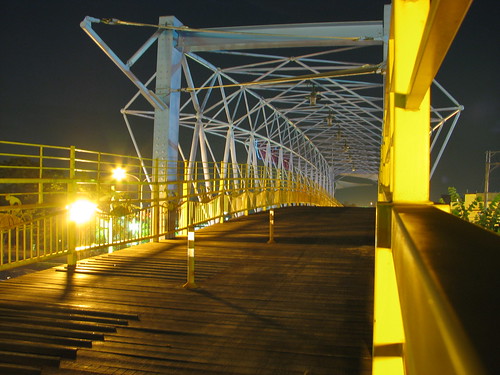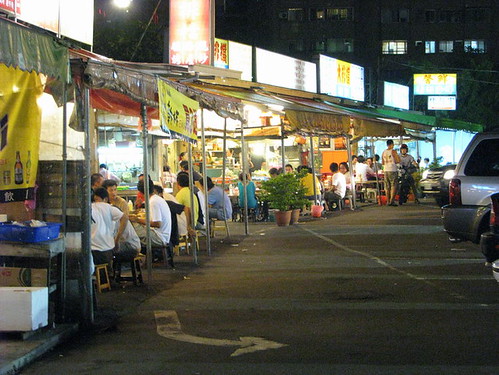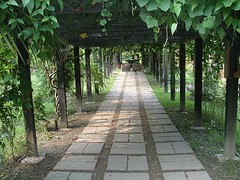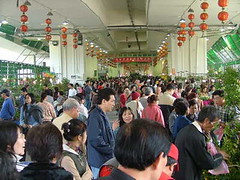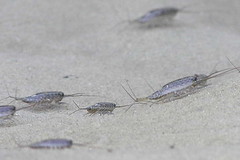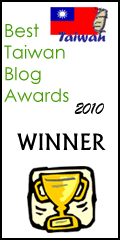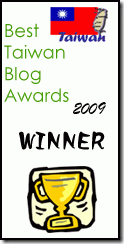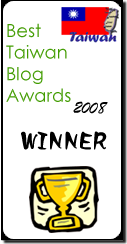Resolution to Make Taiwan a Normal Country (Draft)
Update: The resolution was passed on 3o August with one minor change to the second proposal whereby the DPP resolves to use the Common Era system of dating rather than dating years from the founding of the Republic. Another amendment proposing explicitly to change the name of the country to Taiwan was rejected.
Editorial Note: The following is a translation of the DPP's Resolution to Make Taiwan a Normal Country. The Chinese original is here. The light coverage in the international media is unfortunate, since these resolutions, despite not being binding, are important statements of DPP political thought.
For example, the insertion of 'life community" and the commitments to social justice and sustainable development are hallmarks of DPP candidate Frank Hsieh's moderately leftist thought (insofar as one can be a leftist in mainstream Taiwanese politics). Their presence, and the relative watering down of some of the identity language is also a sign of Hsieh's rising control over the party as the presidential campaign kicks into gear. At the same time, his endorsement of that language is yet more evidence that Hsieh can be understood as a moderate only in the context of established DPP positions on national identity and relations with China.
Italicized emphasis is from the original. There are a few editorial comments in square brackets []. Comments to improve the translation are welcome.
##
Taiwan is a sovereign and independent country. Taiwan does not belong to China, nor does China belong to Taiwan. China does not govern Taiwan, nor does Taiwan govern China. But the internal challenge of Chinese Nationalist Party [KMT] authoritarianism and the external challenge of Chinese hegemony have created five threats to Taiwan's ongoing normalization as a country.
- China's all out aggression against Taiwan's military, foreign affairs, economy, culture, and politics and its unilateral change of the status quo across the Taiwan Strait through its One China Principle and its Anti-Secession Law threaten Taiwan's national sovereignty and security and reduce Taiwan's international space, thereby creating abnormalities in international relations.
- Taiwan continues to use the inappropriate constitutional structure of the Republic of China, making it impossible for its democratically elected government to function normally and creating an abnormal political system.
- Remnants of the educations and cultural superstitions leftover from the authoritarian rule of a foreign regime [i.e. the Chinese Nationalist Party], the suppression of and prejudice against Taiwanese culture is blocking the development of the Taiwanese people's sense of national identity to create an abnormal national identity.
- Preferential treatment of groups with certain identities is destroying social cohesion based on citizenship to create social injustice [lit. abnormal social justice].
- The Chinese Nationalist Party's long term control over its enormous illegitimate party assets helps create a culture of vote buying. The unity of party and state is destroying democracy and creating abnormal competition between political parties.
Faced with these five major threats, the Democratic Progressive Party, as a progressive force that represents the people of Taiwan in ensuring our independence and autonomy and in the pursuit of democratic justice, should now make a Resolution to Make Taiwan a Normal Country on the basis of Article 1 of the DPP Charter [Establishment of a Sovereign and Independent Republic of Taiwan, 1991] and the Resolution on the Future of Taiwan [1999] . The DPP should act to rectify names [zhengming], to institute a new constitution, to join the United Nations, to bring about transitional justice, and to build Taiwanese identity in order to make Taiwan a normal country. To these ends, we make the following proposals:
- Beginning with our recognition of Taiwanese identity as a life community, we shall deepen the democratic values of the Taiwanese people, strengthen Taiwanese consciousness, change the name of the country and institute a new constitution soon, and, at an appropriate time, hold a citizen referendum to make clear Taiwan's status as sovereign and independent nation.
- The name "Republic of China" has become very difficult to use in the international community. For this reason, we shall apply for membership in international organizations including the United Nations and the World Health Organization under the name of Taiwan, and the nation shall use Common Era year names so as to integrate more fully with international practice.
- The government shall promote Taiwanese national identity and identification with the land of Taiwan. It shall take steps to actively support Taiwanese culture and the native languages of Taiwan. And it shall ensure that the educational curriculum is Taiwan-centric.
- National security, social justice , and sustainable development shall be the preconditions for economic development to ensure that the people of Taiwan enjoy a happy and dignified life.
- The government shall comprehensively work to achieve transitional justice by eliminating the remaining political symbols of authoritarian rule and the inequitable distribution of resources. The government shall reform the judicial and law enforcement systems, pursue the illegitimate assets of the Chinese Nationalist Party, rehabilitate victims of political repression during the era of White Terror, and investigate the truth.
The Democratic Progressive Party believes that Taiwan must continue to progress with the times and that Taiwan must rid itself of authoritarian control and cast off the bonds of unreasonable institutions. Taiwan must work actively to change the name of the nation, institute an new constitution, join the United Nations, bring about transitional justice, and build Taiwanese identity. With unity and consistency of purpose, we can establish a great and normal democratic nation.
Labels: DPP, Frank Hsieh, Taiwan independence, Taiwanese identity

